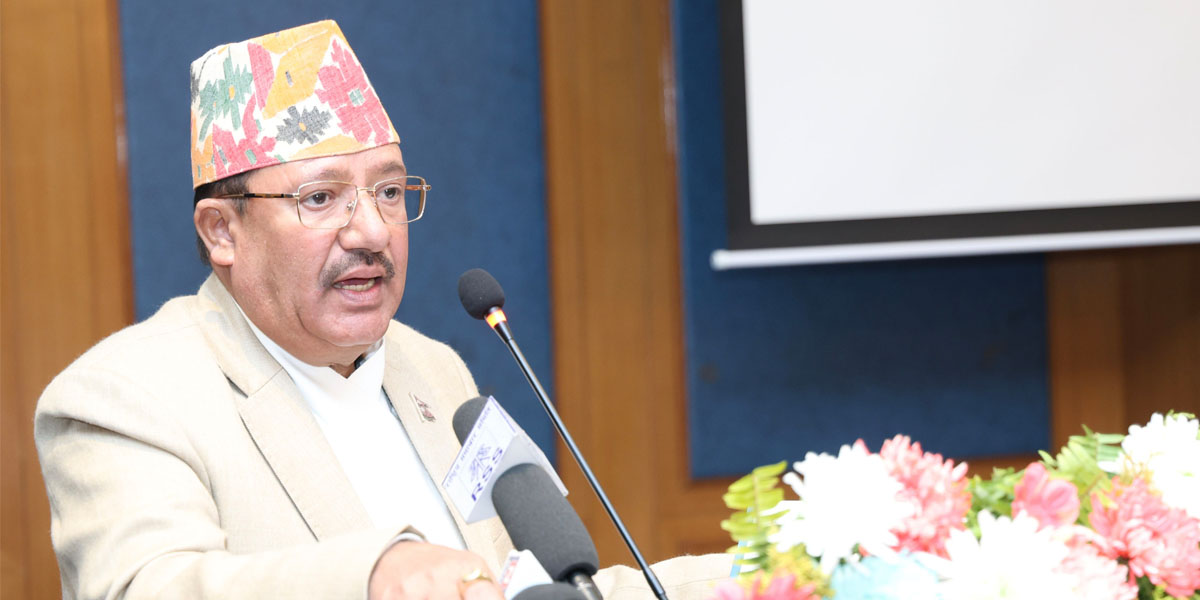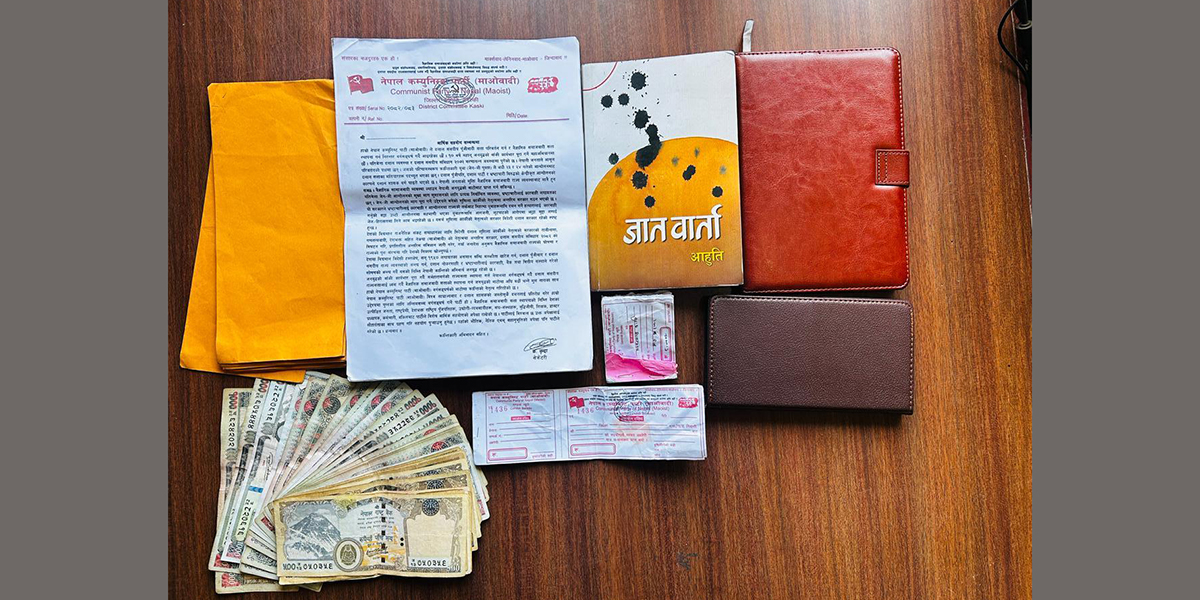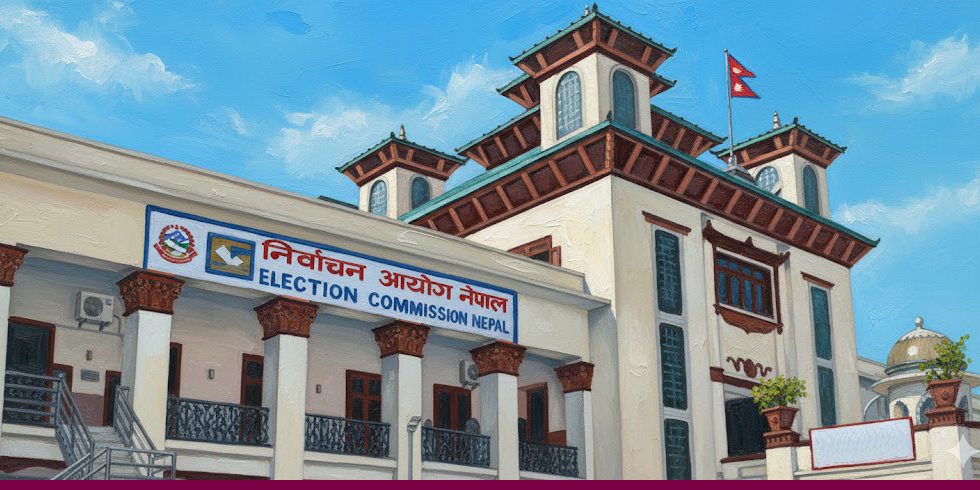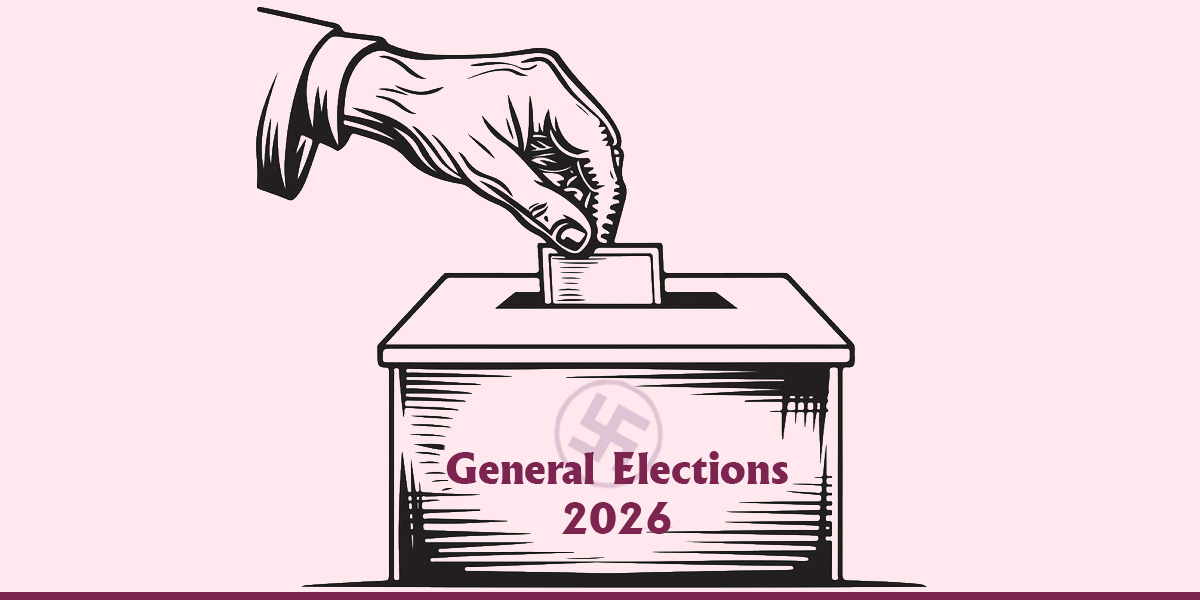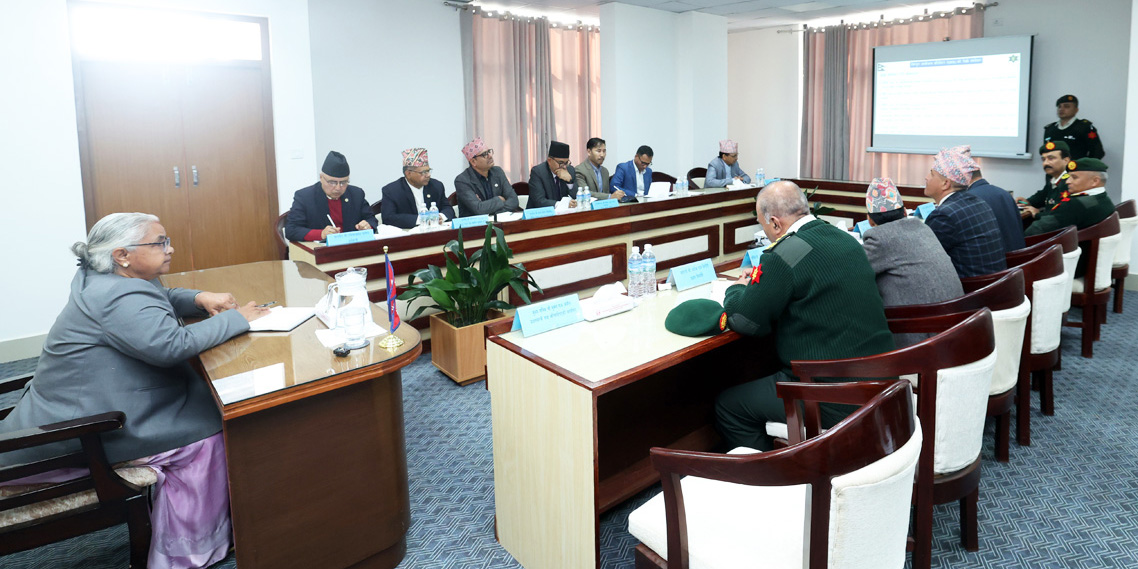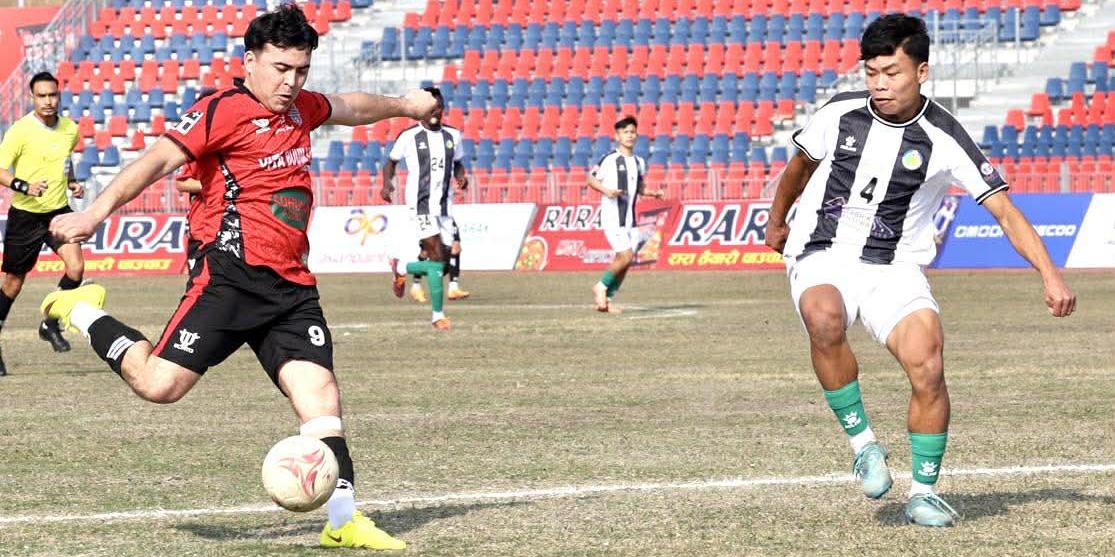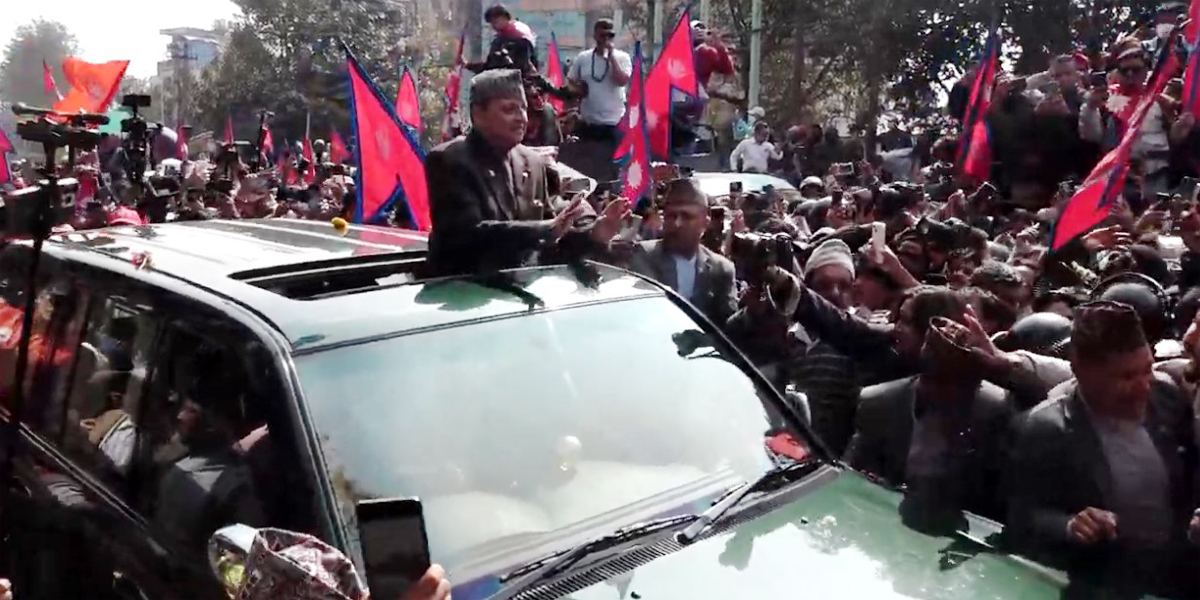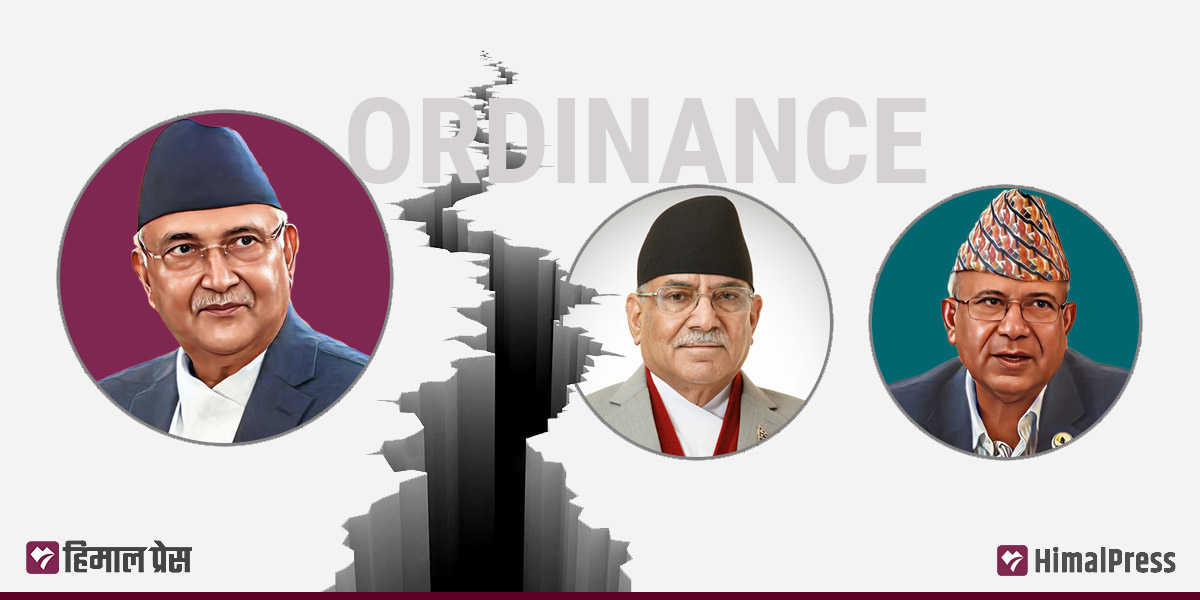
KATHMANDU: Opposition parties have become increasingly anxious following rumors that the government plans to introduce an ordinance related to party splits. The fear of being targeted by this ordinance has particularly rattled opposition leaders.
In response to these rumors, opposition parties have united in their efforts to prevent the ordinance. They held a meeting in Kathmandu on Friday to discuss their next move.
The meeting, led by the main opposition party, CPN (Maoist Center), decided to prevent the government from introducing the ordinance and to protest if it does.
An ordinance is a powerful legislative tool that allows the government to introduce or amend laws when parliament is not in session. Although the opposition parties had prepared to initiate the process of calling a special session of the House of Representatives, they couldn’t move it forward as they lacked the support of one-fourth of the members to call the special session. They then decided to submit a memorandum to the Prime Minister, drawing attention to the rehabilitation of recent landslide and flood victims, among other issues.
The opposition parties, which have weakened with the formation of a coalition government by the two largest parties in parliament, are worried by rumors of a potential ordinance.
Madhav Nepal, chairperson of CPN (Unified Socialist), appears most concerned about the ordinance. Since breaking away from the CPN-UML to form his new party, he has consistently been a target of Prime Minister KP Sharma Oli’s political maneuvers. Nepal fears the ordinance could trigger a split in his party, particularly given the internal disputes that have emerged since their recent convention.
Speaking at his party’s province-level event in Lumbini on October 21, Nepal warned the government against introducing an ordinance aimed at splitting other parties. “Let’s discuss how to develop the country; we are ready for such discussions. An ordinance aimed at destroying other parties won’t be acceptable,” Nepal said, advising the Prime Minister to abandon what he called the “Hitlerian tendency.”
Political analysts say Prime Minister Oli is seeking to split the Unified Socialist and merge the breakaway faction with his party to become leader of parliament’s largest party. Currently, the Nepali Congress holds 89 seats in the House of Representatives, while UML has 78. Oli reportedly hopes to attract 11-12 representatives to make UML the largest parliamentary party.
Despite being in a coalition with UML, the Nepali Congress (NC) has opposed the proposed ordinance. NC’s Publicity Department Chief, Min Bahadur Bishwakarma, has maintained that there is no urgent need for such an ordinance. “We have already conveyed to the Prime Minister that this ordinance is not necessary,” Bishwakarma told Himal Press. “We have advised against rushing and diverting attention from more pressing issues. The Prime Minister agrees with our position.”
Three years ago, similar political maneuvering occurred when then-Prime Minister Sher Bahadur Deuba introduced a party-split ordinance that enabled Nepal to break away from UML with 14 lawmakers to form the Unified Center. The Maoist Center, which is now opposing such moves, had supported that ordinance.
UML leader Bishnu Rijal said he finds it interesting that a party that supported a similar ordinance three years ago is now opposing it. “It is interesting that parties who benefited from a similar ordinance three years ago are now accusing the current government of trying to impose two-party authoritarianism through an ordinance,” Rijal added.
Rijal said that even if the ordinance is issued, the Maoist Center and Unified Socialist would not have the moral standing to oppose it. “Whether the ordinance will come or not, we do not know. But even if it does come, at least the Maoist Center, which played a decisive role in bringing the ordinance three years ago, and the Unified Socialist, which was born on the basis of that ordinance, cannot oppose it on moral grounds,” he added.


